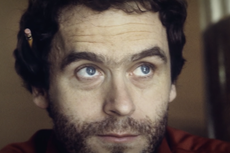If you thought Netflix was invincible think again – latest figures should be a cause for concern
No one predicted the end of Blockbusters either

There’s a now famous scene in Captain Marvel where our hero crashes through the roof of a Blockbuster video store.
I’ll bet every parent delighted in explaining the significance of that to their kids on the way out. I know I did. I bet most of them got similar looks to the one I got too.
Blockbuster was, of course, the king of video rentals, the nearest thing to Netflix in 1995, when the film is set and when “on demand” meant putting your coat on and hoping someone else hadn’t hired your local branch’s last copy of, um, Batman Forever? That was, by the way, the only Marvel or DC adaptation that year. It wasn’t very good.
When that film was on Blockbuster’s shelves, the company’s collapse and evisceration seemed unthinkable. Then it happened.
This brings us to Netflix’s latest numbers, which were greeted by Wall Street like a tuna milkshake after a heavy night on the town, and with good reason.
For most companies, hauling in 2.7 million new customers in three months would be cause for a major celebration.
But Netflix had predicted 5 million. It also endured the first net decline in US subscribers since 2011, when the streaming and DVD rental arms were split.
The price increases the company has been pushing through are finally encountering some resistance, at least in its home market..
Now, I’m not here going to predict the fall of a titan based on just one set of quarterly numbers. That would be incredibly foolish. Netflix has fallen short of expectations before only to rebound. It will doubtless do so again. It happens.
But this nonetheless comes at a dangerous time for a company that has roared into the cultural conversation, and the hearts and minds of millennials and generation Z, not to mention a large number of those of us with grey in our hair.
Netflix is burning through a lot of cash to produce the content its subscribers demand. And I mean a lot of cash. Billions of dollars every year. It has just over 151 million subscribers globally, but it badly needs to spread the costs it is incurring over a much wider customer base.
Another interesting wrinkle concerning those numbers is CEO Reed Hastings saying the miss wasn’t down to competition.
There’s a lot of competition on the way.
Disney is taking back content that used to appear on Netflix for its own streaming venture(s). Captain Marvel is the first of the company’s Marvel adaptations that won’t appear on the platform. In a related move, Netflix has cancelled its mostly successful TV adaptations of the comics’ “street” heroes (Daredevil, Jessica Jones, etc).
British broadcasters ITV and the BBC are poised to bring their content home when the contracts expire for their forthcoming BritBox venture. There hasn’t been much news about it recently, but I’m told that will soon change. Amazon is still around and Apple also wants to join the party too. So does Warner Brothers.
Apple has so much cash it doesn’t need to worry about burn rates.
Fine, says Hastings, people will just enjoy our home produced content.
That’ll need to be good, particularly given the price rises he has introduced.
While Netflix doesn’t produce the blockbusters (for now?) that Disney churns out every couple of months, and the long established and much loved characters, it does have a lot of high quality stuff, properties that are establishing their own brands and followings. Orange is the New Back, Making a Murderer, Sex Education, take your pick. All of them generate water cooler conversation.
Stranger Things 3 recently debuted to widespread acclaim. It has been aggressively marketed, and, along with other additions, may result in a happier outcome when Netflix reports next. Hastings has high expectations for the current quarter.
One thing the company could do to get better at is in showing people things beyond what its algorithm says they should be interested in. It’s a notable weak point. Addressing it would help Netflix prove its value.
The advent of competition is not necessarily a killer for the streaming giant.
When people have one such service they’re often amenable to adding another. This is what BritBox, which is already in the US, is relying on (the sensible figure of £5 a month has been mentioned for access to the vast library of content held by the broadcasters involved).
It’s still a stretch to envisage millennial parents having to explain what Netflix was in a rebooted Captain Marvel 20 years from now. But the all-conquering company no longer looks quite as invincible as it did. There is a chink in the armour and Hastings would be wise to think very carefully before squeezing his subscribers further.
Ructions in the market should at least make for a fun ride for viewers, mind.
The insatiable thirst for high quality, original content to justify those subscriptions fees is fuelling a golden age of TV. Innovative shows which mightn’t have had the space to breathe on traditional networks are being thrown off every few months.
The identity of the producer doesn’t much matter so long as it’s produced.



Join our commenting forum
Join thought-provoking conversations, follow other Independent readers and see their replies